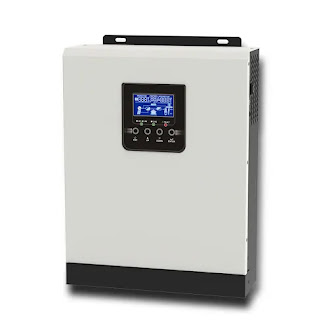Let's Understanding Power Inverter and their Uses in modern society
Electricity is necessary in today's environment to power our gadgets and keep us connected. We rely on energy to run our phones, computers, and other home gadgets. When the power goes out, on the other hand, we are left without a source of electricity and may experience a sense of being cut off and stranded. Power inverters have a role in this.
An electronic device known as a power inverter transforms DC electricity, such as that from a battery, into AC power, which is the power utilized in our homes and places of business. This enables us to keep our devices running during a power outage or when we are not linked to the grid.
Overview of the Power Inverter
Electronic devices have permeated every aspect of our life in the modern day. We use a variety of electricity-powered products and gadgets, from smartphones to home electronics. The issue arises when we don't have access to a reliable electricity supply and need to power these devices.
Inverters are useful in situations like these. Electronic inverters change direct (DC) power into alternating (AC) power. In this post, we'll examine inverters' operation in more detail, as well as their uses, benefits, and drawbacks.
How Inverters Function
Inverters function by transforming DC electricity into AC power using a mix of electronic parts. A DC power supply, a switching circuit, a control circuit, and an output transformer are the fundamental parts of an inverter. A battery or solar panel can serve as the DC power source. The switching circuit is in charge of rapidly turning on and off the DC power. The output transformer turns the high-frequency AC power into a steady AC output, while the control circuit regulates the switching circuit.
The Uses of Inverters
There are numerous uses for inverters in the modern world. Backup power systems are one of the inverters' most widespread uses. In locations where power outages are common, inverters can be used to power backup equipment like fans, lights, and refrigerators. The DC power produced by solar panels in solar power systems is converted into AC power by inverters so that it can be utilized to power buildings such as residences and offices.
Benefits and Drawbacks of Inverters
Compared to conventional power sources, inverters have a number of benefits. The capacity of inverters to supply backup power during blackouts is one of their greatest advantages. Because they efficiently convert DC power into AC power with little loss, inverters are also more efficient than conventional power sources. Because they generate less noise and pollution than conventional power sources, inverters are also eco-friendly.
Inverters do, however, have significant drawbacks. The price of inverters is one of their main drawbacks. Inverters can cost significantly more to maintain than conventional power sources, in addition to being typically more expensive. Inverters' overall cost may increase because they also need a battery or solar panel for DC power.
Selecting the Best Power Inverter
There are many things to think about while selecting a power inverter. The power output of the power inverter is one of the most crucial elements. All of the equipment you want to use during a power outage should be able to be powered by the inverter's power output. The inverter's battery capacity is also crucial since it affects how long it can supply backup power. Another crucial factor is the kind of inverter. Pure sine wave inverters and modified sine wave inverters are the two primary categories of inverters. Modified sine wave inverters create a less-clean AC output that may not be acceptable for all types of appliances, whereas pure sine wave inverters create a clean AC output suited for all sorts of appliances.
Conclusion
Inverters are a crucial part of our daily life, to sum up. They serve as backup power during power outages and are used to power a range of electrical gadgets. Utilizing a variety of electronic components, inverters work by transforming DC electricity into AC power. Compared to conventional power sources, they have a number of benefits, including




Comments
Post a Comment